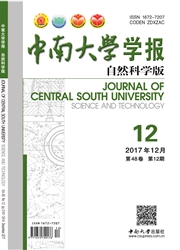

 中文摘要:
中文摘要:
将人体视为依附于车厢底板的单自由度系统,在考虑车体弹性振动的基础上建立高速铁路人车系统动力分析模型,以人体振动响应为基础数据研究车辆运行过程中的乘客舒适性问题。选用德国低干扰谱作为外部激励,分析人体振动与车体振动的差异,研究车辆运行速度、车体弹性振动对乘客舒适性的影响。研究结果表明:单纯采用车体振动来表征人体振动会高估乘客的舒适性等级;频率为1 Hz左右时,振动量在人体响应中有所放大,该频率处在乘客舒适性敏感频率范围内,可能会对乘客造成影响;波长15 m左右导致的激扰频率增大了人体响应,可见,长波长对人体响应的影响较为明显,以车体响应为基础的评价中难以体现这一现象。
 英文摘要:
英文摘要:
With consideration of the flexible vibration of car body,a high speed railway human body-vehicle system model was established to evaluate the riding comfort of human body.In this model,the human body was regarded as single degree of freedom system connecting the car body.German Low Disturbing Track Spectra was chosen as the excitation,and the differences of dynamic responses between the human body and carbody were analyzed.The effects of vehicle running speed and flexible carbody vibration on the human body riding comfort were investigated.The investigation results show that the riding comfort classification based on carbody responses,instead of human body responses,is overestimated.The vibration of human body around 1 Hz in the frequency domain is enlarged and affects the riding comfort of human body.The human body responses are magnified by 15 m wave length,and the long wave influences the human body responses heavily,which is ignored when using the dynamic responses of vehicle.
 同期刊论文项目
同期刊论文项目
 同项目期刊论文
同项目期刊论文
 期刊信息
期刊信息
